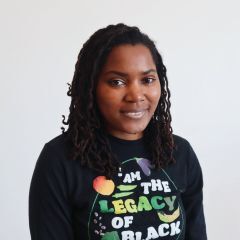Fiw Topics
- Climate Change
- Digital Financial Services
FIW Year
- 2024
Download Transcript:
Summary + Key Findings
The panel discusses financial inclusion’s vital role in enhancing food security, highlighting innovative programs across various regions.
- 🌾 Financial inclusion strengthens food systems by empowering marginalized communities, particularly women, to access necessary resources for agriculture.
- 💬 Community engagement in financial decision-making leads to tailored solutions that address specific challenges faced by local farmers.
- 💻 Digital innovations, such as the virtual Farmers Market, significantly reduce operational costs and improve access to markets and financing for rural farmers.
- 📊 Data-driven approaches are crucial for understanding the needs and demographics of farmers, enabling targeted interventions for greater impact.
- 🌍 The intersection of climate change and food security necessitates adaptive financial products that help farmers withstand environmental shocks and sustain production.
- 🎓 Educational initiatives alongside financial support create a holistic approach, ensuring farmers possess the skills to manage their resources effectively.
- 🔄 The systemic nature of food security challenges requires sustained efforts and collaboration across sectors to foster lasting change in agricultural communities.
This session summary was AI-generated using NoteGPT.
Watch Session:
The panel will explore the intersection of financial inclusion for smallholder famers, and food security for low-income communities, bringing live case studies and associated insights from diverse geographies. Participating panelists are currently delivering pioneering programs in Guatemala, the Philippines, Zambia and the US. They will explore the direct link between financial inclusion and food security, sharing approaches, learning and future opportunities. The audience can expect to come away with new ideas and successful methodologies to leverage financial inclusion to drive food security and community resilience. The panelists work in very different context in terms of geography and demographics, bringing rich and diverse perspectives. In addition to discussing local contexts and solutions, panelists will highlight the challenges and solutions specifically facing women (and indigenous women) smallholder farmers, and also the impact of climate change on food production and associated need for appropriate and tailored financial services.
FIW REsources
Explore Financial Inclusion Week sessions from previous years.
Hosted annually by the Center for Financial Inclusion, FIW brings together global leaders to exchange ideas, share research, and offer perspectives to inform the future of inclusive finance.



